May 12, 2017
“If there be among you a poor man of one of thy brethren within any of thy gates in thy land which the Lord thy God giveth thee, thou shalt not harden thine heart, nor shut thine hand from thy poor brother.”
— Deuteronomy 15:7
Imagine that you are living in a poor village in Haiti, and you and your children haven’t eaten in several days. This is what it is like for more than half the families living in the “regions beyond.” For those in our Feeding Program, they will receive help in the form of manna packs from Feed My Starving Children. Though that is a quick fix for immediate hunger, we know it is not the long-term solution, but it is a start. We realized some years ago that “helping people” should be an evolutionary process of first giving them relief, then helping them to recover, and then assisting them to develop toward self-sustainability.
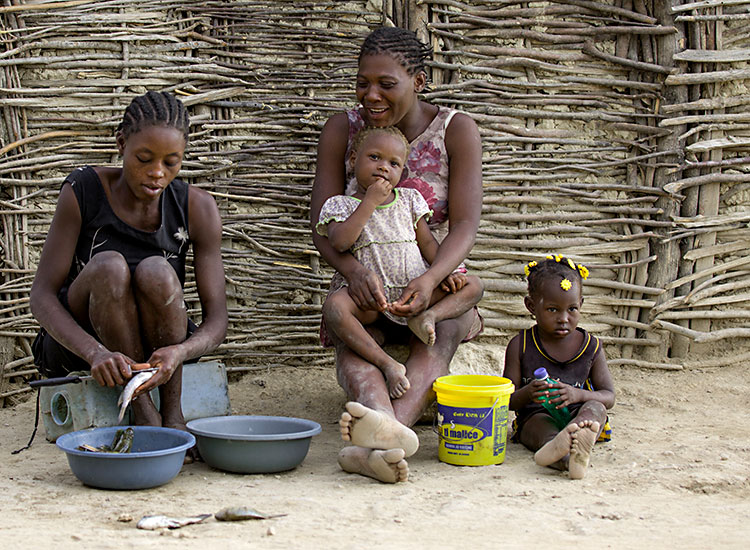
Haiti has a long history of environmental disasters, both natural and man-made. The long-term problem of cutting all the trees down to make charcoal and selling it has devastated most of the country. Without its trees, Haiti remains dangerously exposed to environmental threats such as drought, floods and mudslides, because of the overwhelming levels of deforestation. Then along comes a hurricane that wipes out all the crops and much of the livestock, and the Haitians are back to a daily struggle to survive.
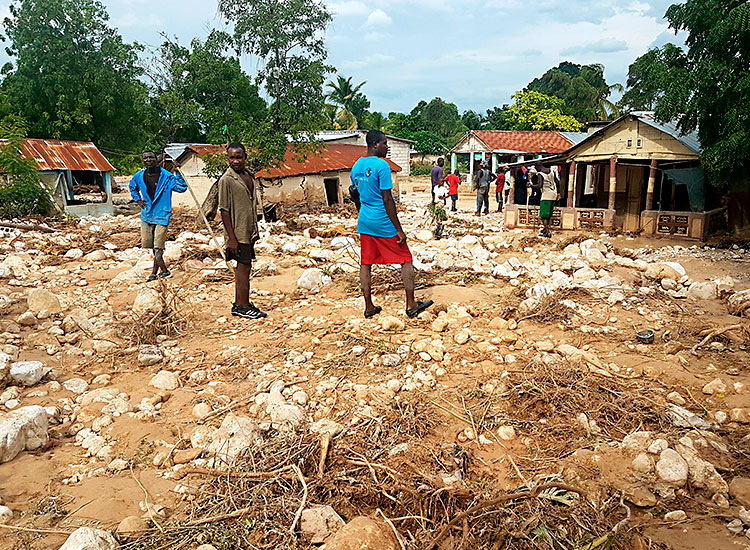
Our feeding program is the “bridge” that brings the Haitian people to development and sustainability. We work very hard to teach the Haitian people how to help themselves. We are starting to see improvement in the area of food security, especially through our efforts with the Agricultural Training Center (ATC).
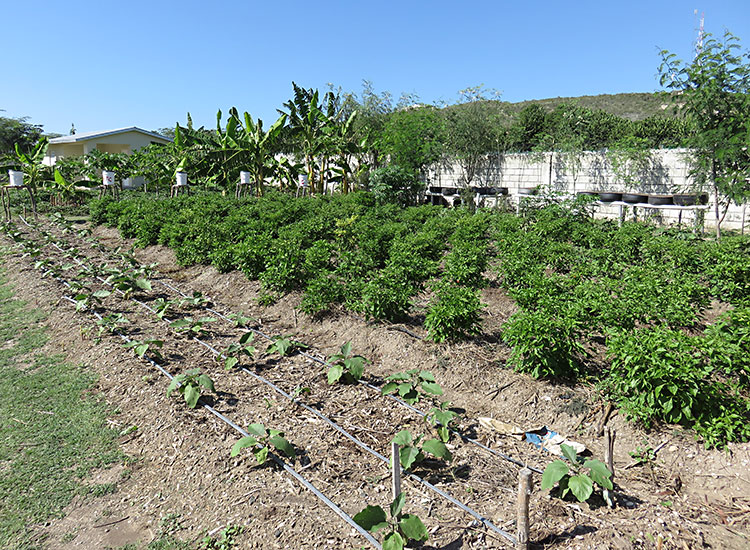
Helping Haitians help themselves is what our Agricultural Training Center is doing! We offer several different programs to reach out to young and old alike. Our 2-year program for Etudiantz En Argo-Ecologie (Students of Agroecology – the study of ecological processes applied to agricultural production systems), teaches Haitians the best way to build food gardens so that they can feed themselves, their families and their community.
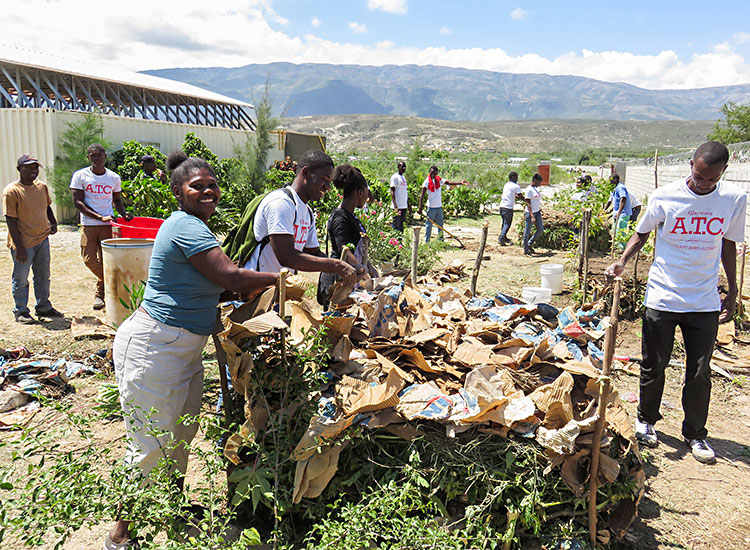
They are starting their education with methods to improve the soil so they can grow vegetables. One of the first big lessons is building a compost pile. The soil that comes from the compost pile will enrich the existing soil. They learn about the use of worms, bio-char, cardboard, and other food waste to improve the depleted soil.
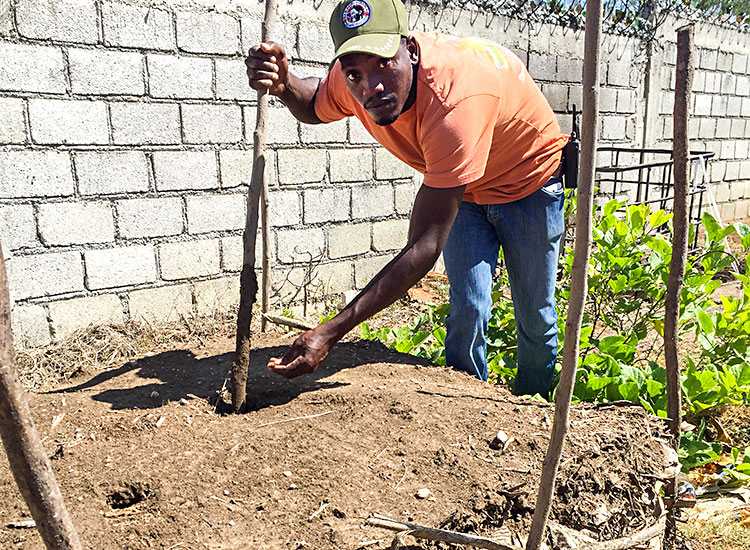
The students learn several methods for growing a garden. Not everyone has a plot of land or soil to be able to grow a big garden, so other alternatives are explored such as creating a “tire garden,” and they are very successful in several villages.
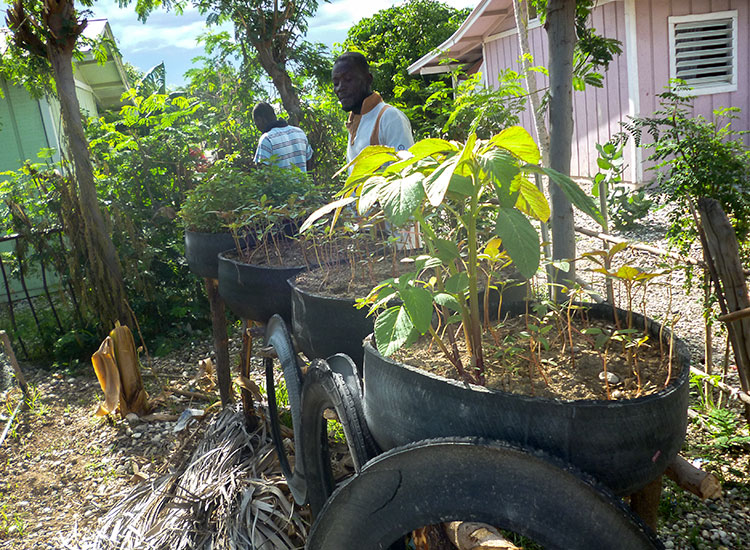
Look how great this “spinach” (epinard) grows! This is an easy vegetable to grow and offers great nutrition for children and adults, and Haitians love their spinach. Haitian people become working, viable members of society, and create sustainable improvements in their living conditions.
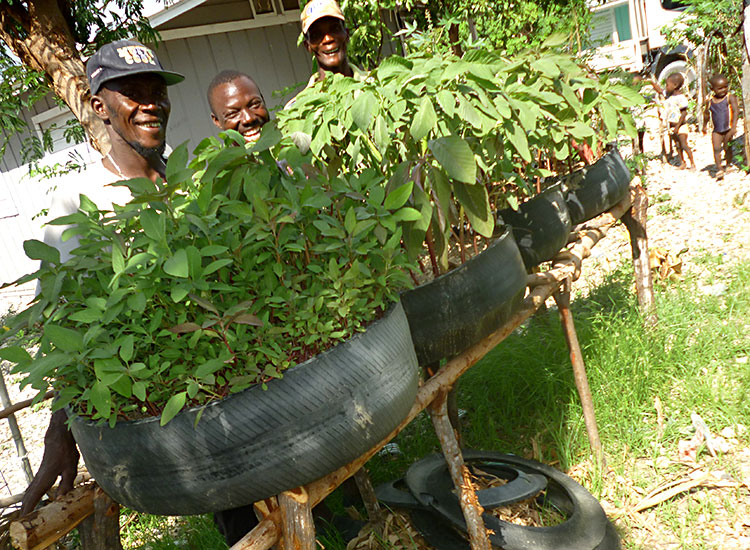
We grow much of our “spinach” epinard in the shade house located at the ATC for those living in the Love A Child village. What a wonderful way to teach our orphans about growing healthy food.
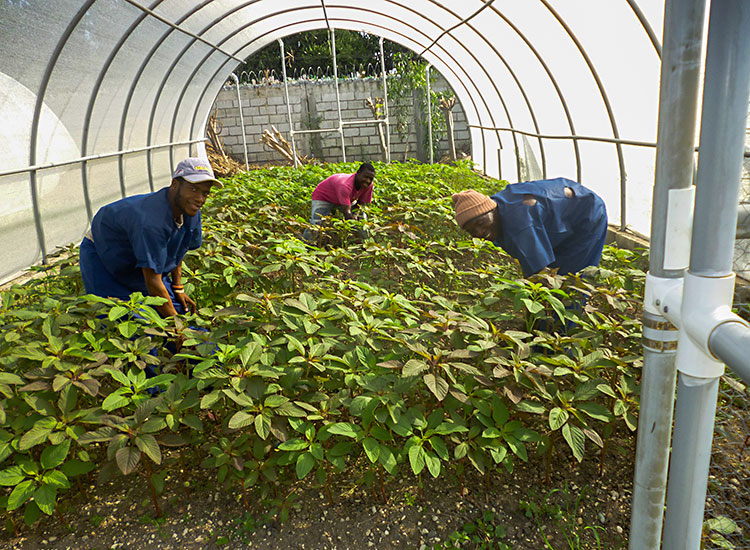
We also are growing Amaranth in outside gardens to cultivate for the seeds. The seeds are harvested and then ground into a grain flour used for baking bread.
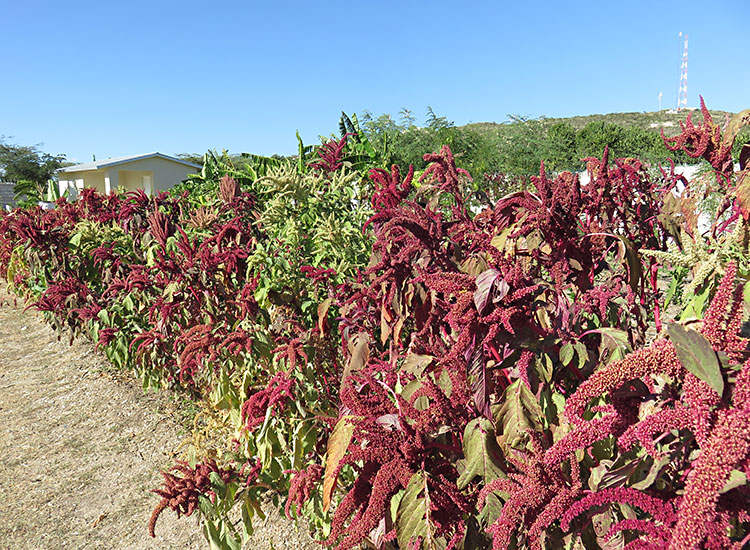
Learning to grow food that brings the most nutritional value, and understanding the diversity of growing plants that have multiple uses, encourages the planting of produce such as Amaranth and Moringa, which have numerous nutritional purposes.
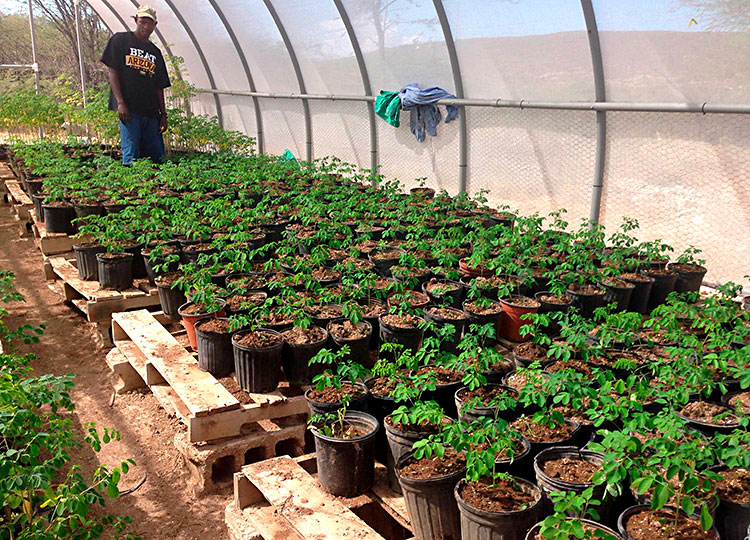
Even our cooks at our Love A Child Orphanage, love to receive fresh vegetables such as this epinard from the ATC gardens to cook for all of us at the Love A Child Orphanage.
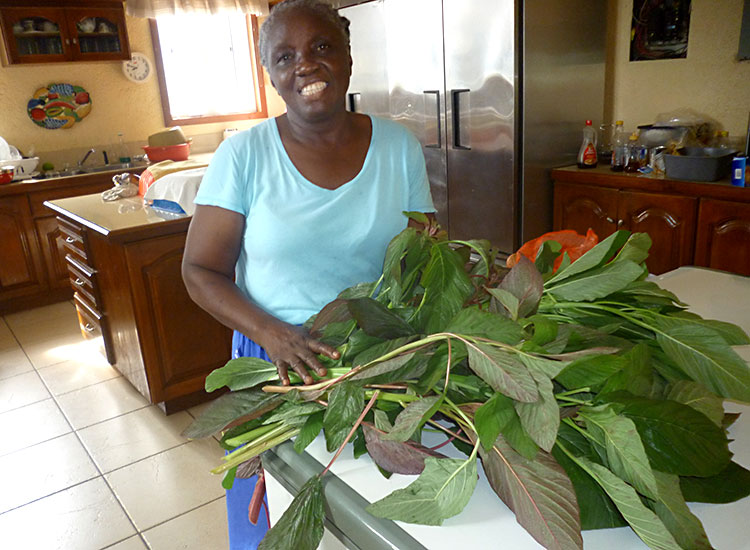
We have a wonderful Director of our Agricultural Training Center, Wilner Exil (in the yellow shirt below), who is a trained agronomist and is doing great things with his students at the ATC. He is developing other programs so that he, along with his students, can go to schools and other villages to teach other Haitians how they too can raise their food and create a “Food for Life” opportunity.
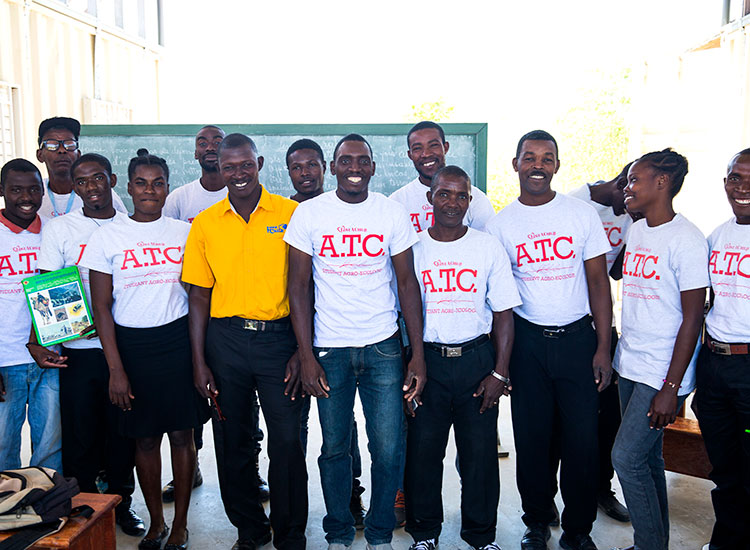
Recently, Wilner had classes in agriculture with our children at our Love A Child Miracle Village School! These little ones are learning about growing trees and protecting the soil of Haiti! Great job Wilner!
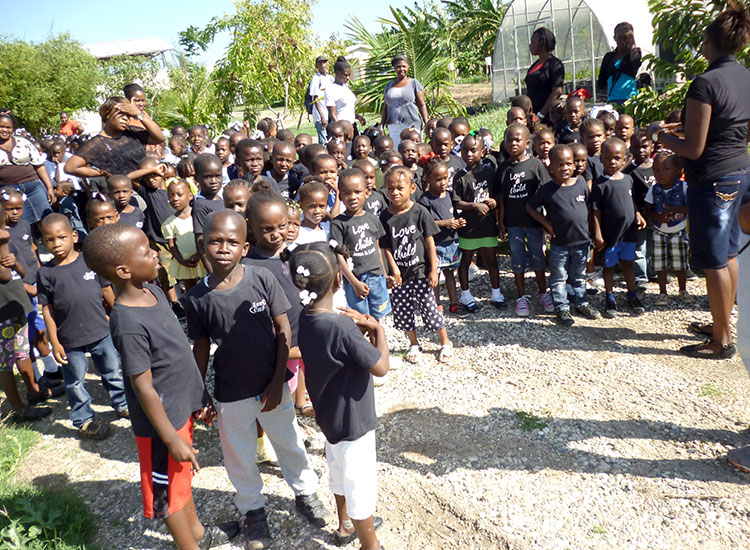
Wilner picks out some sweet, hot peppers that have been growing in one of the gardens. He is teaching children that this is where your food grows before going to the market.
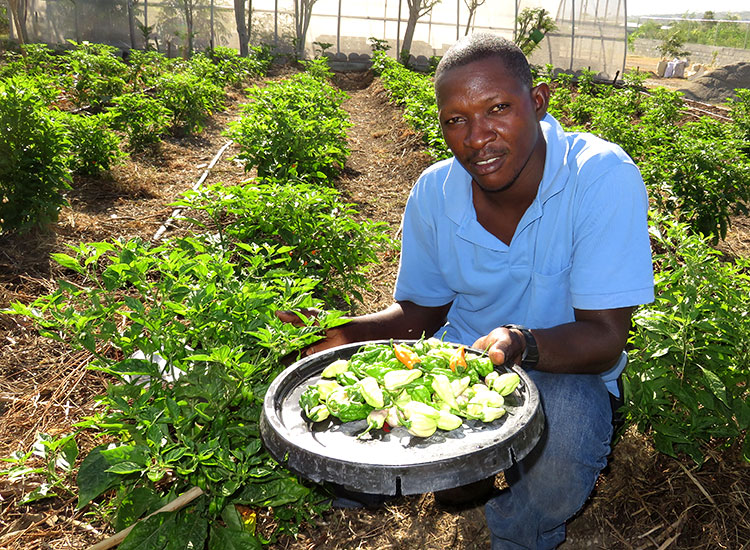
Wilner is extending the ATC program to help Haitians living in other poor villages. In Letant, he has introduced tire gardens along with preparation of the existing soil to improve traditional vegetable gardens.
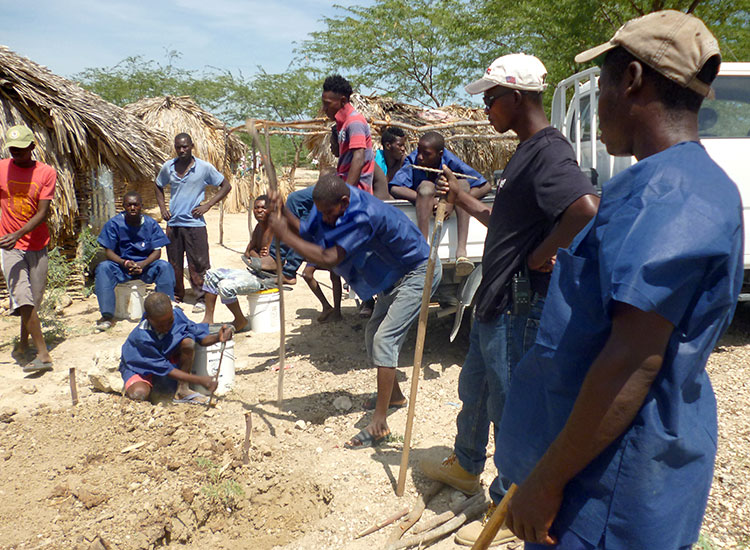
Now they have both epinard and Moringa trees growing in a small area, both highly nutritious. It is a great start to Haitians helping themselves and helping other Haitians.
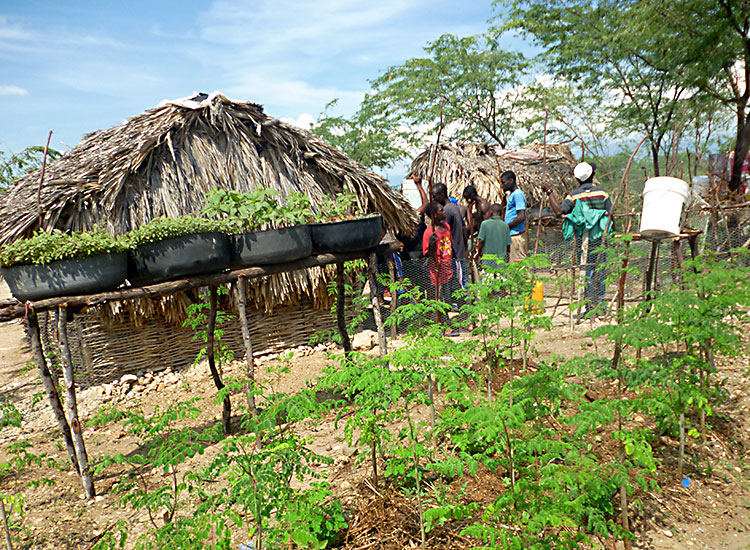
Reaching out to their fellow Haitians brings sustainability to the region and hope for a better life, one that they all participate in to end hunger and encourage independence from outside sources.
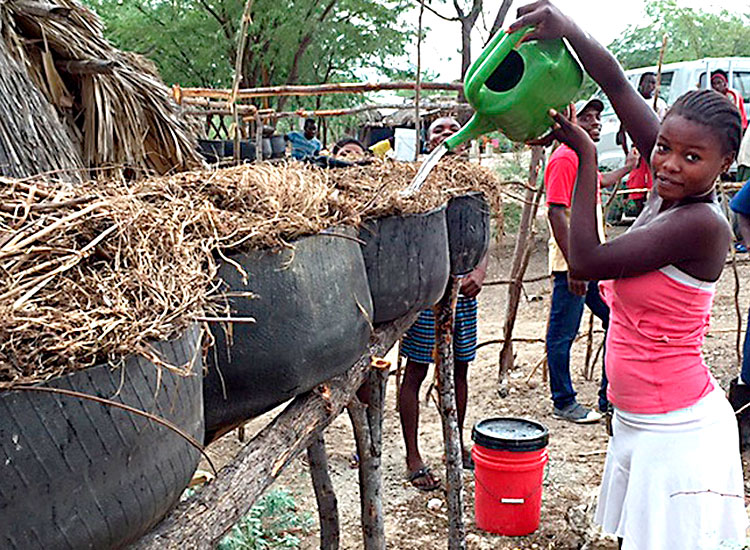
This summer, we will open our “Agricultural Extension Training Program” to poor villagers! Thank you, Rad Hazelip, our Assistant Executive Director, for birthing this whole idea!!! You are the “Papa” of this wonderful and successful program! God bless Wilner and all our partners for bringing hope and solutions for Haiti’s future.
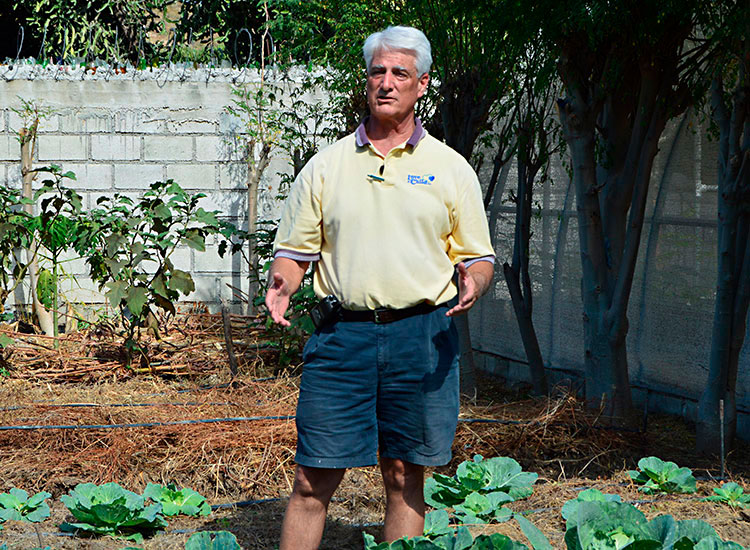
Bringing sustainable resources to Haitians will significantly improve their lives by not only having nutritional food available but also a source of income.

Many local Haitians will be able to sell their fresh produce in our marketplace, giving them the opportunity to purchase other goods, which improves the economy.
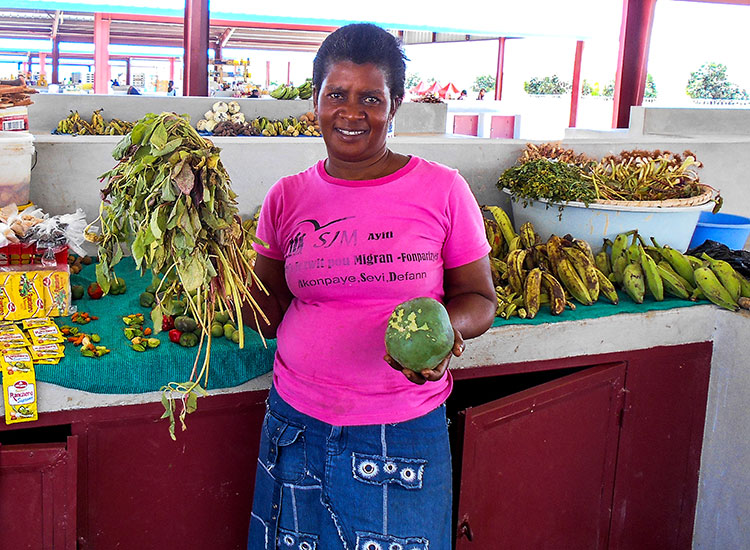
Many new jobs and businesses are being provided at Gwo Maché Mirak (Grand Miracle Market), an open-air market built in 2014 to bring sustainable employment opportunities to the very poor. Thank you Pastor Jentezen Franklin and your Kingdom Connection Partners for the funds to build Gwo Maché Mirak. Having jobs and the ability to feed their families restores dignity among the suffering Haitian people. Also, utilizing new skills and earning a livelihood allows everyone here to become part of the solution toward ending poverty in the region.
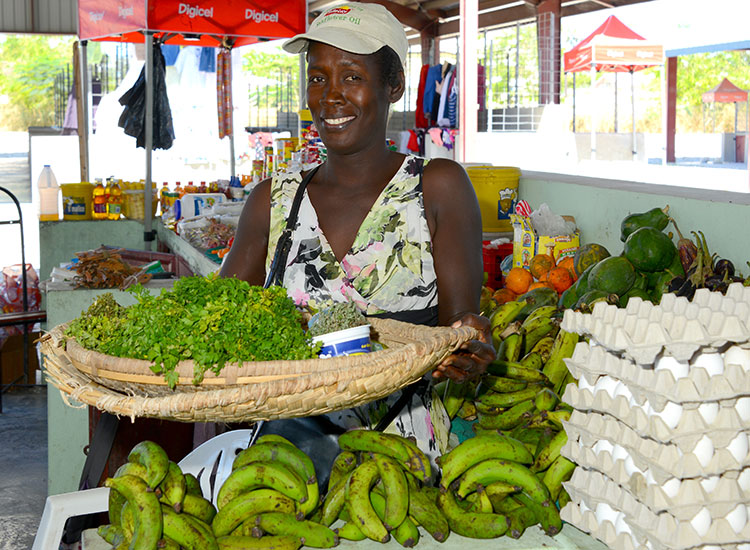
Being able to feed their families with nutritious food is essential for improving the lives of Haitians every day. When farmers keep up the standards they are taught and become careful stewards of God’s gardens, the effect includes high yields and sustained food supplies for future generations in Haiti.
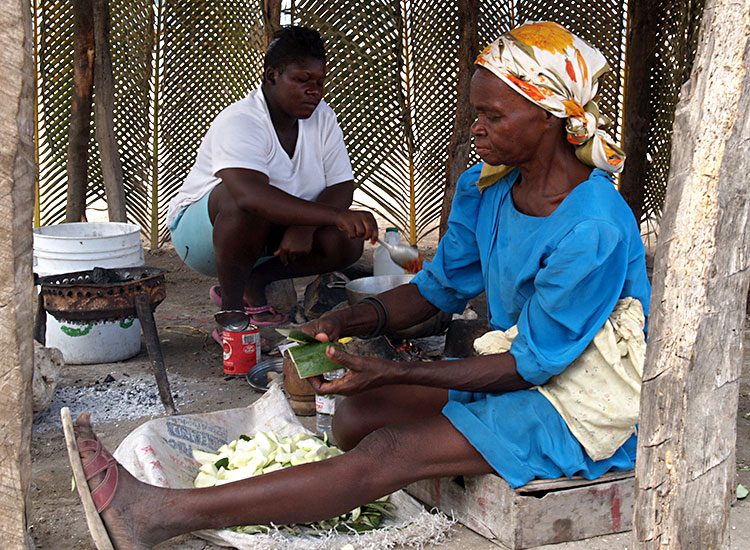
The ATC is planning a new three-week residential training and internship program where villagers can be sponsored to come live, train and work at the ATC. Our first Sustainable Agricultural Extension Training Program is tentatively scheduled for late-June, and we already have three sponsored villagers attending! We need more sponsors to help us send more poor villagers to this amazing training opportunity.
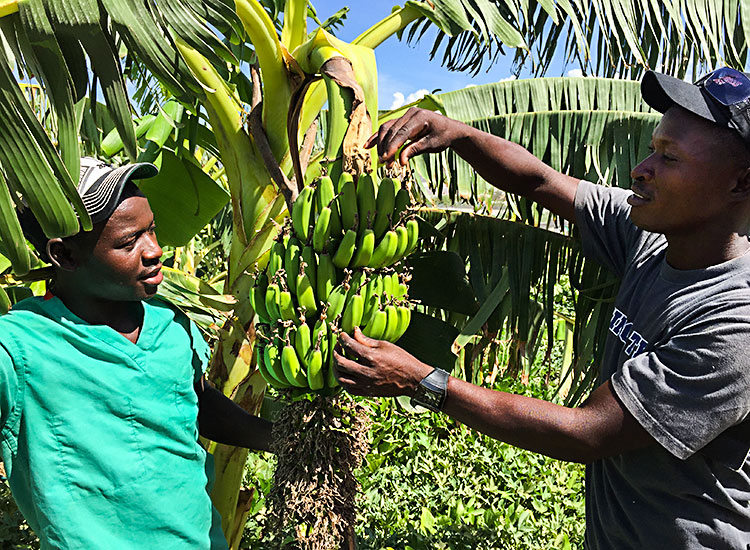
This training will teach these remote villagers methods of sustainable gardening for their families and their village, including such things as how to make compost, making homemade fertilizers and insecticides, using drip irrigation, seed saving, soil preparation, water conservation, and even making “gardens” without soil. Each successful graduate from this program will receive vegetable garden seeds from Hope Seeds, drip irrigation kits from Chapin Living Waters and a set of basic garden tools from Z23 to take back to their villages.
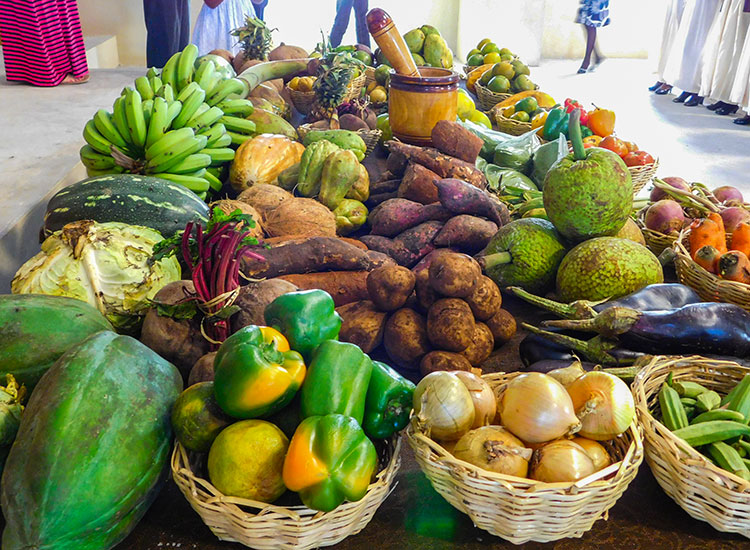
Please contact Rad Hazelip or Mike Sullivan at the Love A Child office at 239-210-6107 to learn more about how $725 will sponsor a villager for this outstanding “Food for Life” training opportunity. If you would like to make a contribution, please consider a donation to sustainable agricultural practices to improve food security and promote agricultural-based jobs. With your help, we run monthly farming classes, produce an agricultural radio talk show, and spread critical agricultural reform awareness throughout various communities in Haiti. It makes such a difference in the lives of these poor people. Please call our office at 239-210-6107 and let a staff member know that you want to help.
Sherry


